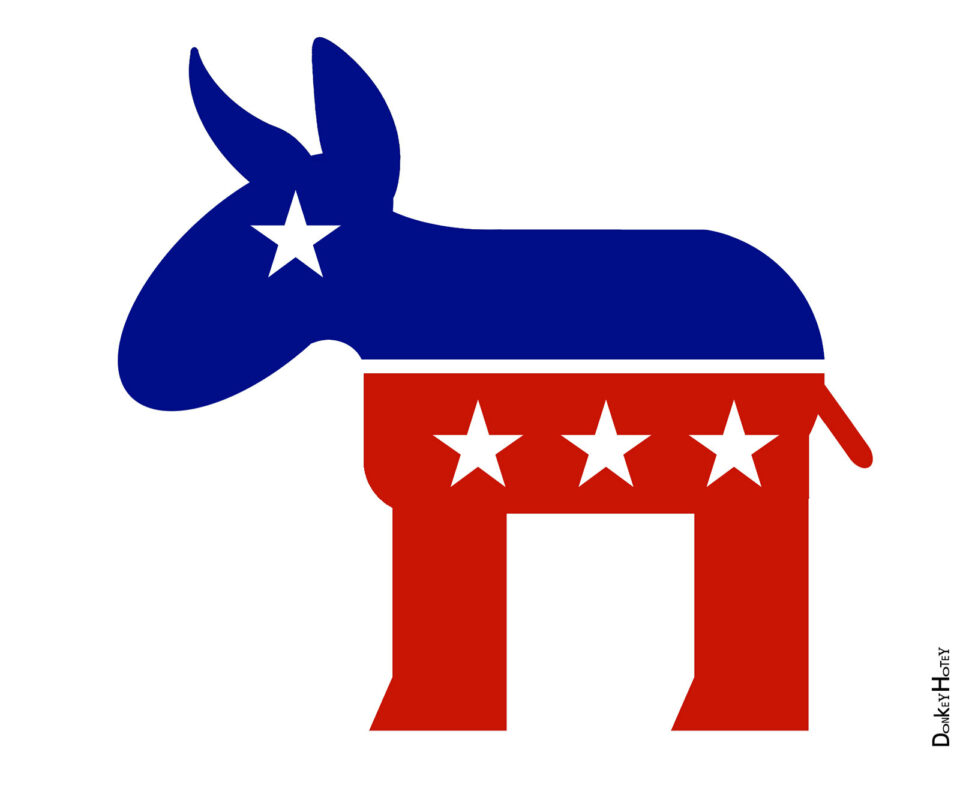With new polling showing that Republicans have gained a significant advantage in the upcoming midterm elections, progressives on Monday said Democrats must spend the next three weeks laser-focused on the U.S. economy and their plans to end price-gouging and rein in corporate power to help working people.
The New York Times/Siena College poll showed that 49% of likely voters now plan to support Republican candidates, while 45% favor Democrats. In September, the same poll showed Democrats with a one-point lead.
“This poll should be a wake-up call for our party,” said Rep. Ro Khanna (D-Calif.).
Independent voters particularly have swung toward Republican candidates, with 51% now saying they would support a Republican. In September, Democrats had a three-point lead with independents.
Despite widespread outrage over the right-wing majority of the U.S. Supreme Court’s June ruling which overturned Roe v. Wade and paved the way for at least 13 states to outlaw abortion care, women who identify as independent voters showed the largest shift toward Republicans in the past month. They favored Democrats by 14 points in September, and now they support Republicans by a margin of 18 points.
The newest poll data was gathered between October 9 and 12, with 792 likely voters responding.
While President Joe Biden has recently unveiled policies that have the support of a majority of Americans, including his decisions to pardon people with federal marijuana possession offenses and to cancel some student debt for certain borrowers, voters reported that they plan to make their decisions in November based on the rising cost of living and inflation.
In July, 36% of likely voters said economic concerns were primarily guiding them to support or oppose candidates, compared with 44% now. Respondents who were focused on the economy were more than twice as likely to support Republicans than Democrats.
As Democratic leaders, candidates, and strategists review the data, Khanna said, they must consider progressive lawmakers’ recent push “for a sharper and stronger economic message.”
This poll should be a wake up call for our party. Several of us in Congress have been pushing for a sharper & stronger economic message with a call to make things in America, tackle the supply chain crises, and address price gouging. https://t.co/i65nCrlzUp
— Ro Khanna (@RoKhanna) October 17, 2022
Earlier this month, Khanna introduced his New Economic Patriotism Plan, which would push the federal government to support American-made products and materials and which could help address the current supply chain crisis.
Khanna and other progressives have also spoken out about price gouging by powerful oil companies that have raked in over $100 billion in profits so far this year—lavishing the money on shareholders and executives while working people struggle to afford fuel on top of groceries, housing, and other essentials.
“Giant corporations are using inflation as a cover story to jack up prices and pad profits,” said Sen. Elizabeth Warren (D-Mass.) earlier this year as she introduced legislation to empower federal regulators to stop companies from price-gouging.
Those proposals are among the subjects Democrats should be focusing on as early voting gets underway across the country, said progressives on Monday.
“Democrats should close the election with a clear argument about who is prepared to fight for the working class,” said Mike Casca, director of communications for Sen. Bernie Sanders (I-Vt.).
While Democrats have unveiled proposals to stand up to wealthy corporations in recent months, Republicans have pushed plans to raise taxes on low income households and weaken government programs relied on by millions of senior citizens including Medicare and Social Security.
On Monday, The Washington Post reported that one of the top priorities for Republicans if they retake control of Congress would be to make permanent portions of the Trump tax cuts that overwhelmingly benefited the rich and corporations.
Warren Gunnels, an adviser to Sanders, pointed to a recent report by the pro-worker media organization More Perfect Union which showed that a promise to provide direct cash benefits similar to the expanded child tax credit—which Republicans flatly opposed continuing this year despite the fact that it cut childhood poverty by 30% and helped millions of families to afford necessities—was found to be “the most popular campaign message” a candidate could have.
How about that: The most popular campaign message is lowering the cost of living by providing working families $300 a month per child paid for by taxing corporations – which the GOP opposes. Our amendment to do that got 1 vote out of fear it would offend 2 corporate Democrats. https://t.co/XH69h0EhUB
— Warren Gunnels (@GunnelsWarren) October 14, 2022
Sanders has pushed Democrats in recent days to communicate clearly with voters about the danger Republicans pose to working Americans’ finances and how the Democratic Party has worked to help the middle and lower class.
“I think they should contrast their views with the Republican positions,” Sanders told NBC News on Sunday, repeating his argument from an earlier opinion piece in The Guardian. “I believe, and most Democrats believe, that at a time when half our people are living paycheck to paycheck, we should raise the minimum wage to a living wage. No Republicans support that. I think we should make it easier for workers to join unions. Republicans don’t support that.”
Rev. Dr. William J. Barber III, co-chair of the Poor People’s Campaign, agreed Monday.
“You can’t cede the economic argument to folks who say the answer is to give corporations and the wealthy more money,” he said.
